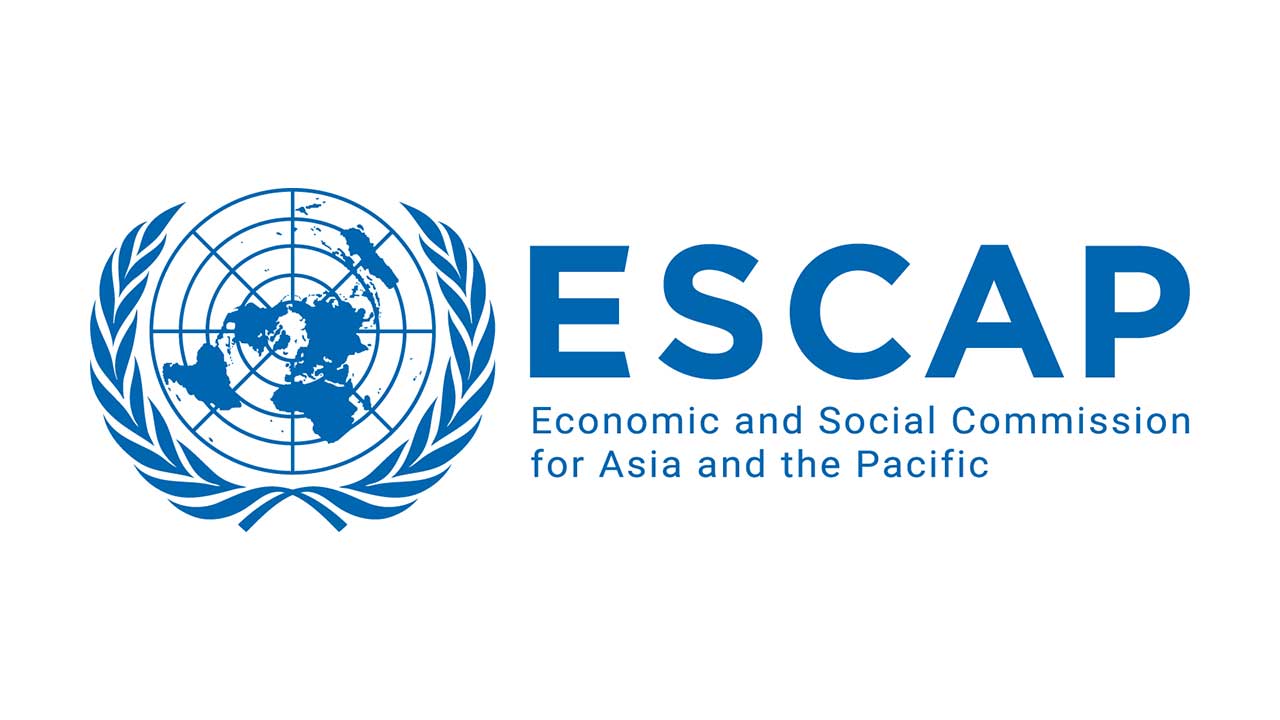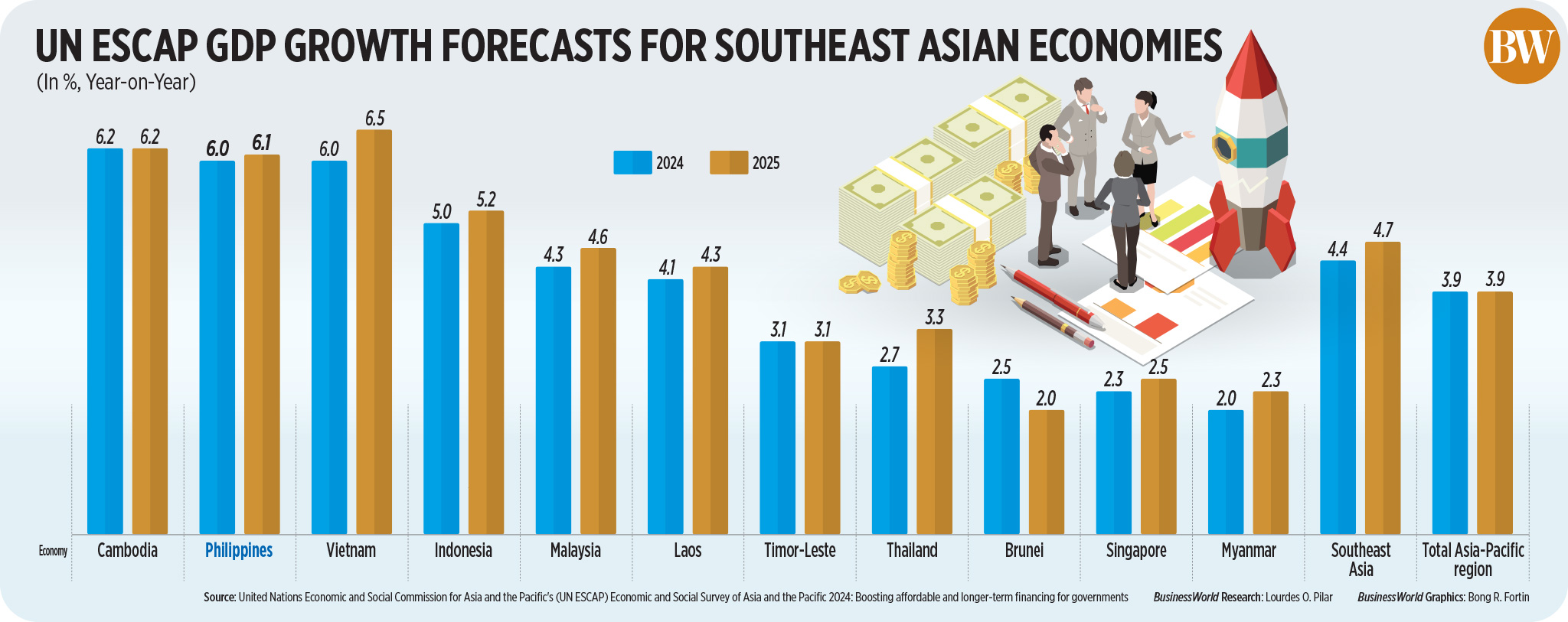ESCAP upgrades Philippine GDP growth forecast to 6%

THE Philippine economy is expected to grow 6% this year, according to the United Nations Economic and Social Commission for Asia and the Pacific (ESCAP), upgrading a 5.7% forecast issued in April.
If borne out, the ESCAP projection would fall within the government’s revised 6-7% growth target for 2024.
Based on ESCAP’s estimates, the Philippines and Vietnam (6%) would be the second fastest growing economies in Southeast Asia this year, behind Cambodia (6.2%).
For 2025, Philippine gross domestic product (GDP) growth is estimated at 6.1%, which is also within the government’s 6.5-7.5% forecast range.
In its Economic and Social Survey of Asia and the Pacific report, ESCAP expects growth in the Asia-Pacific region to slow to 4.4% in 2024.
“The moderation is most notable in East and Northeast Asia, in contrast to an expected economic rebound in Southeast Asia and a relatively stable trend in other subregions. Overall, supported by declining inflation, household consumption would continue to drive output growth in the near term amid weak external demand,” according to the report.
Meanwhile, Philippine headline inflation is projected at 3.8% this year, falling within the Bangko Sentral ng Pilipinas (BSP) target range of 2-4%, before slowing to 3.5% next year.
The Southeast Asian inflation average is forecast at 2.8% and 2.6% in 2024 and 2025.
“Caution continues to be required from monetary authorities in terms of deciding the path of monetary policy to ensure that inflation is effectively tamed,” ESCAP said.
The BSP maintained interest rates at a near 17-year high 6.5% in February, standing pat for a third straight meeting. To tame inflation, the central bank raised borrowing costs by 450 basis points from May 2022 to October 2023. — Beatriz Marie D. Cruz




